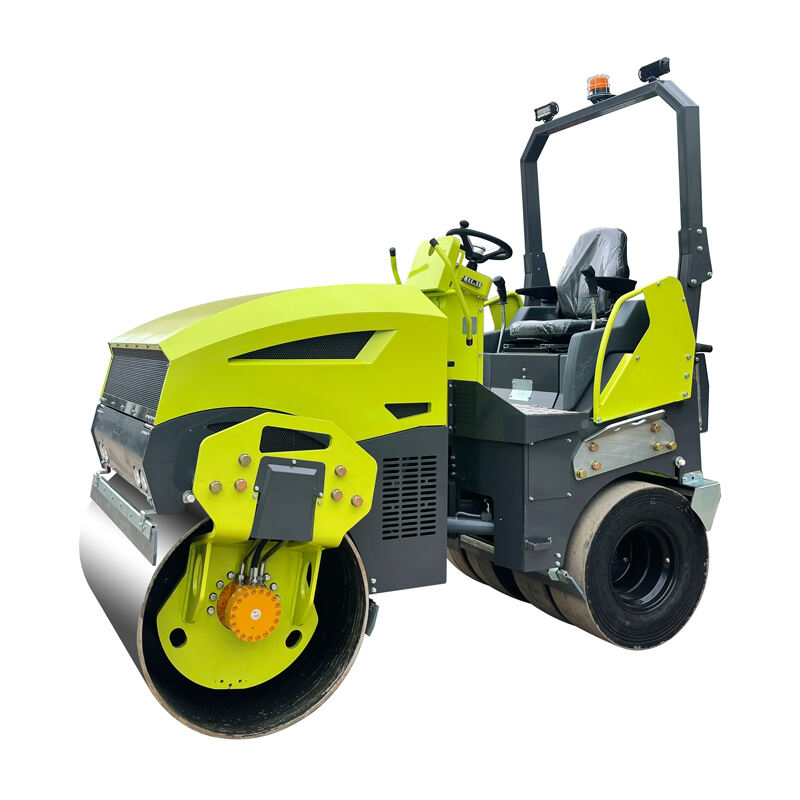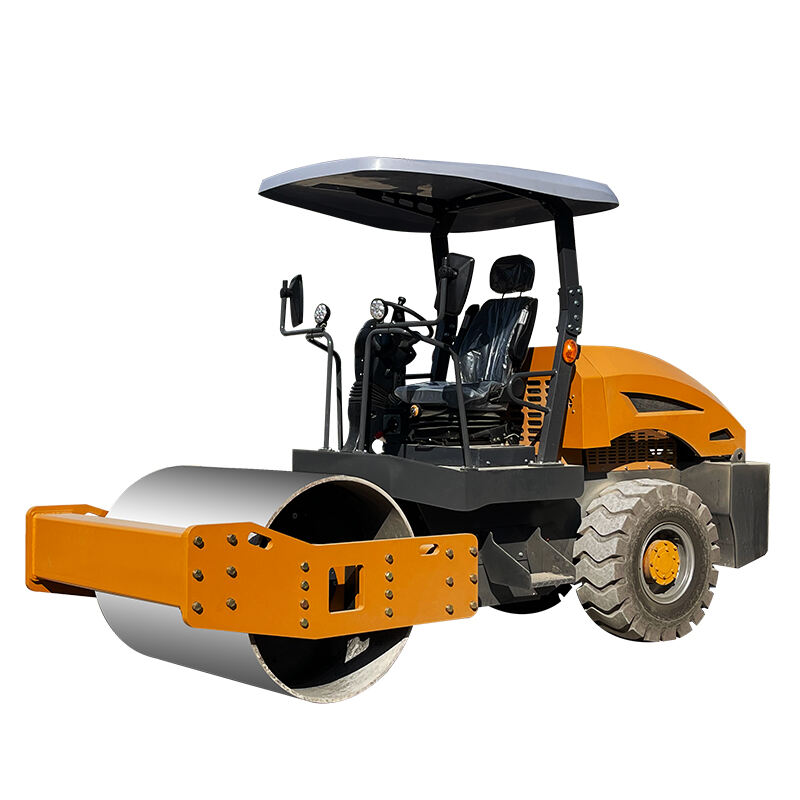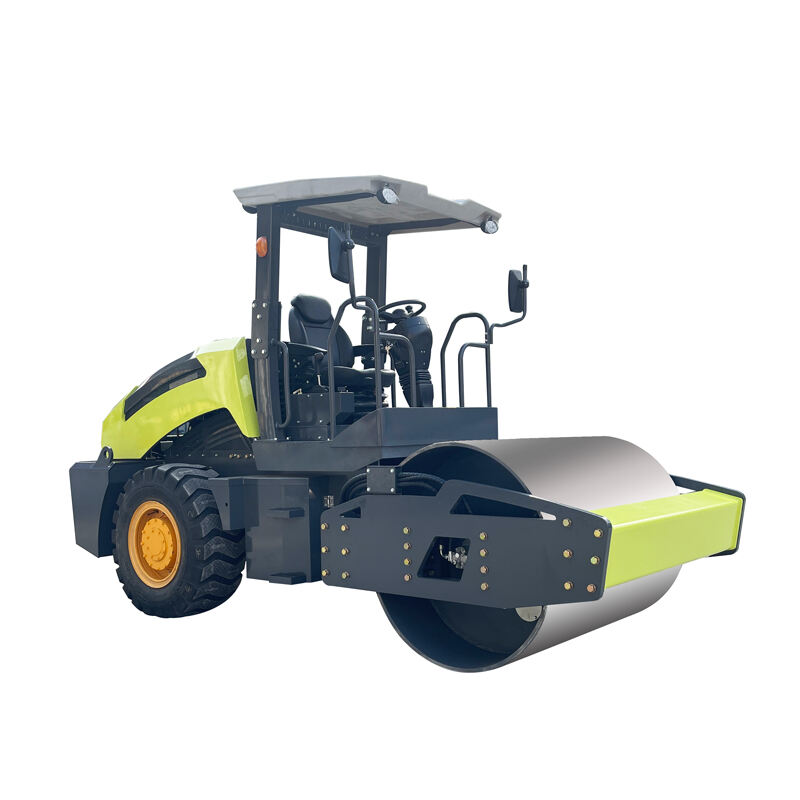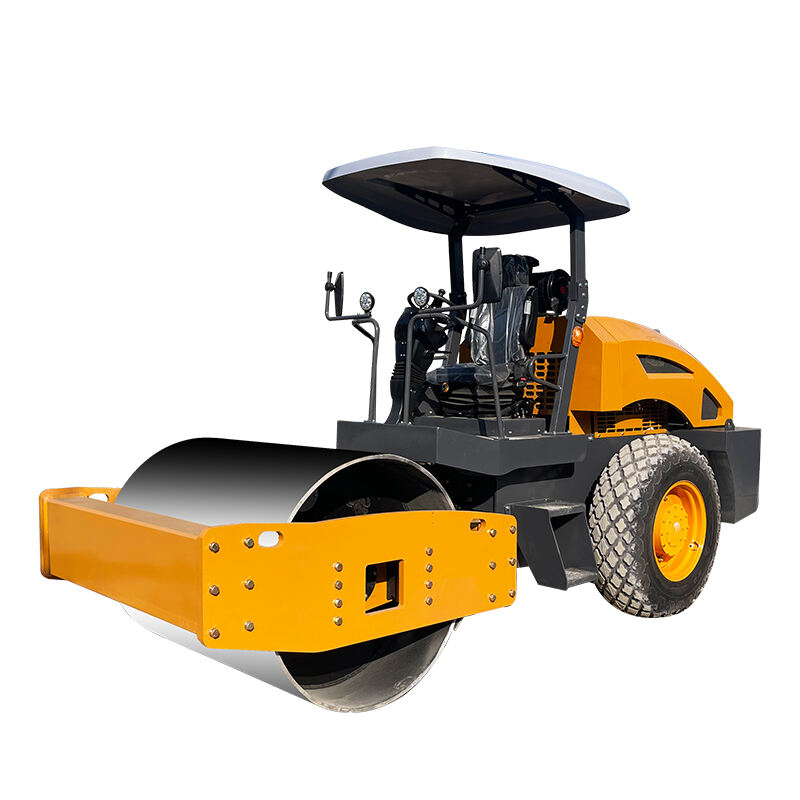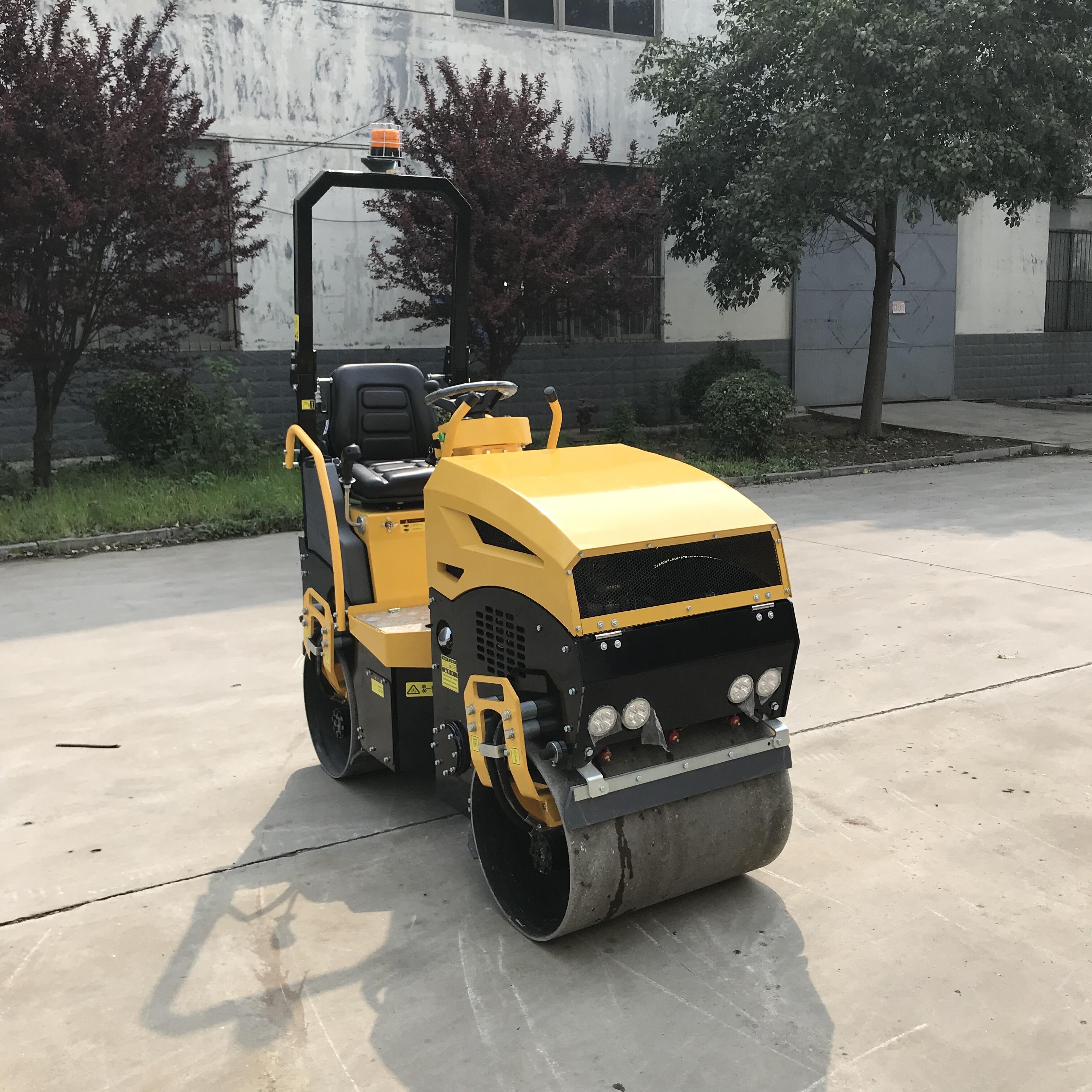Road Rollers: Key Equipment for High - Quality Road Construction
The Critical Role of Road Rollers in Modern Road Construction
Why Compaction Matters for Asphalt Longevity
Proper compaction is crucial for enhancing the longevity of asphalt surfaces. Studies have shown that well-compacted asphalt can extend the lifespan of roads and significantly reduce maintenance costs. Inadequate compaction, on the other hand, often leads to surface cracking and premature failure, compromising the structure's integrity. Industry standards highlight the need for achieving optimal compaction levels to prevent such issues. Road rollers play a pivotal role in attaining uniform density across asphalt layers, which is essential for effective load distribution and road strength. By ensuring consistent compaction, road rollers help in maximizing the asphalt's durability and performance.
Road Rollers vs. Other Compaction Equipment
While various compaction devices exist, road rollers are highly effective in asphalt applications due to their unique features. Compared to plate compactors and vibratory plates, road rollers offer superior compaction speed and can reach greater depths, making them ideal for large projects. Expert opinions suggest that road rollers have an edge due to their drum design and precise weight distribution, which enhances their efficiency. This design allows them to compact materials uniformly, providing a stable and smooth surface. Such features make road rollers a preferable choice when it comes to ensuring comprehensive compaction over extensive areas.
Types of Road Rollers for Different Construction Needs
Vibratory Rollers: Ideal for Dense Soil and Asphalt Layers
Vibratory rollers are essential in road construction due to their efficiency in compacting dense soil and asphalt layers. These rollers work by transmitting vibrations through their drums, optimizing energy transfer during compaction. This process significantly reduces void ratios within the compacted material, leading to more stable and durable surfaces. Performance data supports this, showing that vibratory rollers achieve lower void ratios compared to static rollers. This makes them the preferred choice for projects requiring high-density compaction, such as highways and heavy-duty road surfaces. Their ability to deliver uniform compaction ensures the longevity and performance of road surfaces.
Static Rollers: Precision Compaction for Final Surfaces
Static rollers play a pivotal role in achieving precision compaction, particularly for final surface finishes. Unlike vibratory rollers, static rollers rely on the weight of their drums to compact materials, making them ideal for achieving smooth and aesthetically pleasing asphalt surfaces. Various construction case studies highlight the impact of static rollers on surface smoothness and durability. Their operational simplicity and reliability make static rollers valuable tools in the finishing stages of road construction. They are especially effective in environments where careful handling and precision are required to avoid surface damage while ensuring a flawless final finish.
Tandem Drum vs. Pneumatic Tire Rollers
The choice between tandem drum rollers and pneumatic tire rollers depends on the project requirements and soil or asphalt conditions. Tandem drum rollers use two steel drums for compaction and are known for their excellent finish and high compression efficiency. They are particularly effective on flat and even surfaces, providing a consistent compaction depth. On the other hand, pneumatic tire rollers feature multiple rubber tires that help compact materials by kneading, providing better sealing of the surface due to the flexibility of the tires. These rollers are advantageous in providing better load-bearing capacity and are suitable for diverse surface types. However, they may require more maintenance due to tire wear. While tandem drum rollers are often preferred for precision and finishing, pneumatic tire rollers are valued for their versatility and adaptability to various project conditions.
How Road Rollers Achieve Optimal Asphalt Compaction
The Science Behind Vibration Frequency and Amplitude
Vibration frequency and amplitude are crucial engineering factors that significantly impact the compaction effectiveness of asphalt layers. When using road rollers, the vibration frequency can be adjusted to match the material properties, ensuring efficient energy transfer and optimal compaction. Research indicates that specific vibration settings are essential for achieving the desired density in different materials and environmental conditions. For example, high-frequency vibrations are more effective for thin asphalt layers, while lower frequencies suit thicker layers. Contractors must consider these principles when selecting suitable vibration settings for their projects. By understanding these dynamics, they can maximize the efficiency and effectiveness of road rollers like vibratory and asphalt rollers.
Temperature Management During Paving Operations
Temperature management is critical during paving operations to ensure optimal asphalt compaction. Asphalt must be compacted while it is still within its workable temperature range, generally between 275-300°F. Failure to adhere to these temperatures can lead to incomplete compaction, resulting in surface defects and reduced longevity. Modern technologies, including infrared thermometers and GPS-linked sensors, help monitor and maintain these temperatures throughout the compaction process. Authorities like the National Asphalt Pavement Association (NAPA) provide guidelines for best practices in temperature management. Utilizing these technologies and following expert guidelines ensures that paving operations deliver durable and high-quality asphalt surfaces.
Key Considerations When Choosing Road Construction Equipment
Project Scale and Roller Weight Classifications
When embarking on a road construction project, understanding how the project scale affects the choice of road roller types is crucial. Road rollers are classified by weight and functionality, playing a significant role in determining the compaction quality and efficiency of road layers. For instance, smaller projects may utilize lightweight compactors, which are ideal for limited surface areas, while larger, more demanding projects require heavy roller compactors for enhanced compaction depth and quality. This classification system facilitates better decision-making, aligning equipment capabilities with project needs to ensure success. In assessing project requirements, contractors should evaluate task objectives, site dimensions, and soil conditions to choose suitable equipment. The correlation between equipment choice and project outcomes cannot be overstated; selecting the right road roller optimizes performance and ultimately contributes to project success.
Fuel Efficiency and Maintenance Cost Analysis
Fuel efficiency significantly impacts the total cost of ownership for road roller equipment, particularly in large-scale construction projects where extensive operation times are the norm. Different types of road rollers exhibit varying fuel consumption levels, influencing overall operational costs. Studies indicate that newer models of roller compactor and asphalt roller equipment tend to be more fuel-efficient, thereby reducing costs over time. For instance, models with advanced engines and hydraulics minimize fuel consumption while maintaining efficient operation. In addition to fuel considerations, maintenance practices also play a critical role in controlling costs. Regular maintenance, including timely oil changes, lubrication, and part replacements, can enhance equipment longevity and performance. By adhering to these practices, contractors can ensure continuity in equipment function and avoid costly downtimes. Incorporating statistical data on fuel consumption and leveraging insights from industry reports can guide contractors in making informed decisions, effectively balancing initial equipment expenses with long-term operational savings.
Spotlight on Storike Road Rollers: Reliable Solutions for Contractors
ST4500C 4.5 Ton Combinated Tyres Vibratory Road Roller
The ST4500C 4.5 Ton Combinated Tyres Vibratory Road Roller stands out with its advanced compaction technology and robust design. Ideal for diverse construction sites, it features both vibratory and static rollers controlled by combined tyres, offering flexibility in tackling various terrains. With a reputation for high efficiency and durability, the ST4500C has been lauded in testimonials from contractors who appreciate its performance in optimizing road quality on challenging surfaces.
STS04 4Ton Single Drum Vibratory Road Roller
The STS04 4Ton Single Drum Vibratory Road Roller is praised for its versatile performance in asphalt compaction tasks. Known for its simplicity and high operational efficiency, the STS04's design facilitates seamless adaptability across different project scales. Users have highlighted its effectiveness in achieving uniform compaction, while experts commend its reliability in maintaining asphalt layer integrity. Compared to its competitors, the STS04 offers an attractive price point and dependable function, making it a valuable investment for contractors.
STS06 6Ton Heavy-Duty Compaction Performance
The STS06 6Ton road roller is tailored for heavy-duty applications, offering unmatched performance in major construction projects. Notable features include enhanced compaction strengths specifically designed for demanding environments, ensuring a sturdy and consistent finish on varied substrates. Performance comparisons to similar models indicate substantial advantages in compaction depth and force, which users have affirmed through positive feedback regarding its reliability and lower maintenance demands.
STS08 8Ton Industrial-Grade Asphalt Compactor
The STS08 8Ton model epitomizes industrial-grade efficiency, tailored for expansive asphalt compaction projects. Key features include advanced control systems for precise asphalt leveling and thickness uniformity. Projects utilizing the STS08 have reported remarkable success due to its power in handling large-scale compaction, effectively reducing operational costs. User experiences highlight its ease of use and the substantial time savings it offers.
1 Ton Ride-On Roller: Compact Power for Tight Spaces
The 1 Ton Ride-On Roller is engineered to maximize power in confined urban spaces, ensuring effective compaction even in challenging environments. Its design emphasizes ergonomic features, with reliable navigation controls facilitating seamless maneuvers in restricted sites. Successful project implementations have highlighted its utility in urban development scenarios, providing strong compaction without overwhelming the infrastructure. User testimonials acclaim its durability and straightforward maintenance, reinforcing its position as a preferred choice for tight space projects.
 EN
EN
 AR
AR CS
CS DA
DA NL
NL FI
FI FR
FR DE
DE IT
IT NO
NO KO
KO PL
PL PT
PT RO
RO RU
RU ES
ES SV
SV TL
TL ID
ID LV
LV SR
SR SK
SK SL
SL VI
VI SQ
SQ ET
ET TH
TH TR
TR AF
AF MS
MS GA
GA HY
HY KA
KA BS
BS LA
LA MN
MN MY
MY KK
KK UZ
UZ KY
KY

